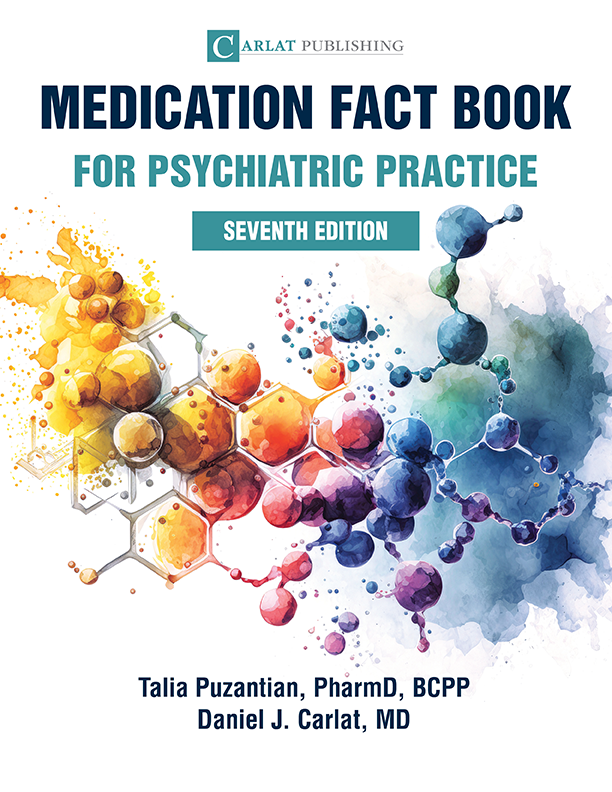Atypicals Roughly Equivalent to Molindone for Youth Psychosis
A recent NIMH-sponsored eight week trial compared two atypical antipsychotics, olanzapine (Zyprexa) and risperidone (Risperdal), to the first-generation antipsy- chotic, molindone (Moban) in the treatment of 116 youths with schizophrenia or schizoaffective disorder. There were no differences between the medications in terms of efficacy. Olanzapine was associated with significant increases in weight (average of 6.1 kg), total cholesterol, LDL cholesterol, insulin, aspartate aminotransferase, and alanine aminotransferase. Risperidone was also associated with increased weight (about 3.5 kg) and significantly increased prolactin levels. Molindone patients generally did not gain weight, but experienced akathisia at a higher rate than those taking atypicals, though they did not report more dystonic or parkinsonian symptoms (Sikich et al., Am J Psychiatry 2008;165:969-978).
TCPR’s Take: These results align with findings from several recent trials in adults that have also failed to demonstrate any significant efficacy advantage for atypicals over first- generation antipsychotics (FGAs). In the present study, all patients on molindone received prophylactic treatment with benztropine, which likely reduced the expression of parkinsonian side effects. Research has suggested that providing concomitant anticholin- ergic treatment is helpful in reducing such side effects and likely improving outcomesfor adults taking FGAs (Rosenheck RA, Psychiatr Serv 2005;56:85-92). Side effect profiles differ significantly between FGAs and atypicals, but there appears to be little difference in efficacy overall between these drugs, particularly when lower-potency first-generation antipsychotics are used at moderate doses and concomitant anticholinergics are prescribed for patients taking FGAs.
Newsletters
Please see our Terms and Conditions, Privacy Policy, Subscription Agreement, Use of Cookies, and Hardware/Software Requirements to view our website.
© 2025 Carlat Publishing, LLC and Affiliates, All Rights Reserved.


_-The-Breakthrough-Antipsychotic-That-Could-Change-Everything.jpg?1729528747)



